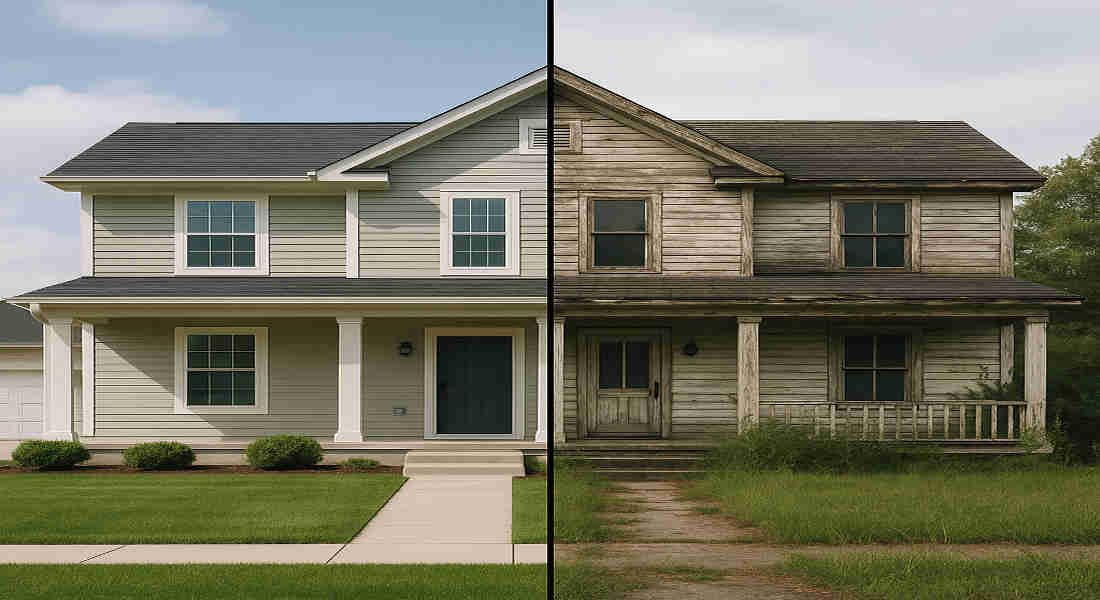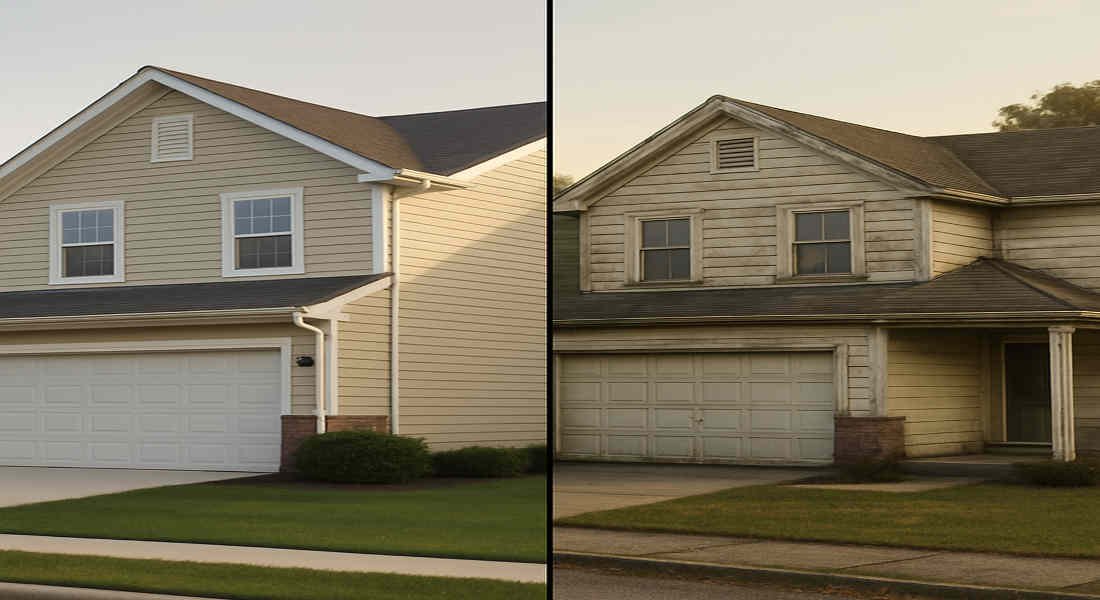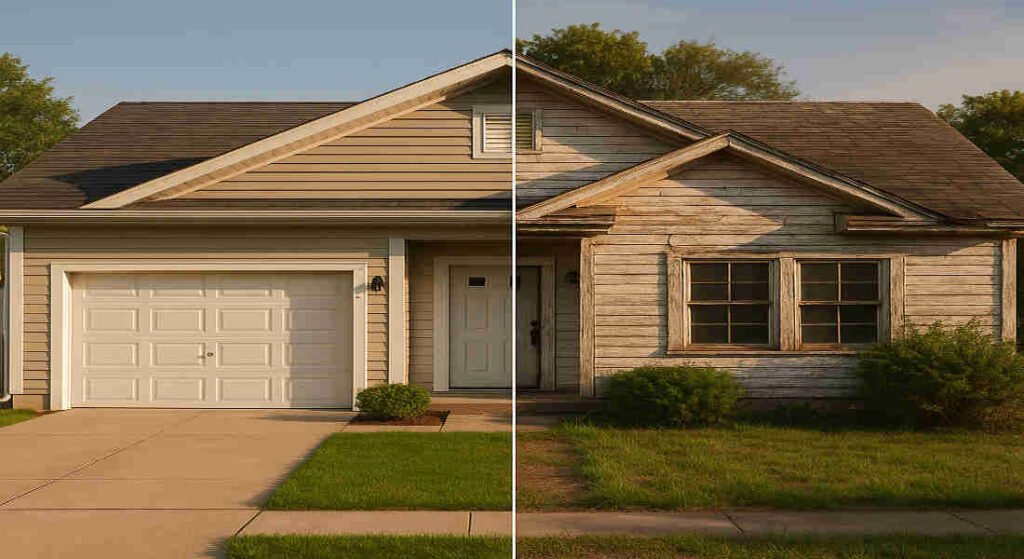Home depreciation is a key concept for homeowners and real estate investors alike, representing the gradual decline in a property’s value over time due to wear and tear, aging, and obsolescence. While properties often appreciate in market value, depreciation is recognized for tax purposes as it accounts for the ongoing deterioration of the building and its components. Understanding home depreciation is essential because it affects tax deductions, investment decisions, and the calculation of gains or losses when selling a property. This introduction will guide you through what home depreciation entails, how it is calculated, and why it matters for homeowners and investors.
What is Home Depreciation?
Home depreciation refers to the decrease in a property’s value over time. Several factors contribute to this decline, including wear and tear, market conditions, and changes in the neighbourhood.
As homes age, they naturally experience deterioration. Roofs may need to be replaced, appliances can break down, and overall maintenance is required more frequently. These elements directly impact your home’s appeal and worth.
Market dynamics also play a significant role. If housing demand drops or new developments arise nearby that overshadow your property, its value can decline.
When buyers feel uncertain about their investment due to these factors, it often leads to decreased home values.
Understanding home depreciation helps you stay informed about your investment’s health during ownership and prepares you for future decisions, such as selling or making renovations.
Factors that Affect Home Depreciation
Several factors can affect the rate of depreciation of a home over time. One significant element is the location. Homes in desirable neighbourhoods tend to retain their value better than those in less favourable areas.
The condition also plays a significant role. Well-maintained properties tend to hold their worth, while homes that require repairs may lose value more quickly.
Market trends also impact depreciation. Economic downturns can lead to decreased property values, whereas booming markets may experience appreciation instead.
Environmental issues, such as flooding or pollution, can significantly reduce a home’s appeal and market value. Understanding these factors helps homeowners make informed decisions about their investments and future sales.
You may also read (how to prepare for falling housing prices in a recession).
Importance of Knowing Your Home’s Depreciation
Understanding your home’s depreciation is crucial for several reasons. First, it impacts your property’s current market value. Knowing how much your house has depreciated can guide you when it’s time to sell or refinance.
This knowledge could lead to substantial savings over the years.
Furthermore, being aware of depreciation trends allows homeowners to make informed decisions about maintenance and improvements. If you understand the factors driving down value, you can take proactive steps to mitigate those risks.
In real estate investing, understanding depreciation enables a more accurate assessment of potential investments. It equips investors with the insight needed to effectively predict future performance and returns on investment.
Calculating Home Depreciation
Calculating home depreciation can feel daunting, but it’s essential for understanding your investment. The most common method is the straight-line depreciation approach. This involves subtracting the property’s value from its estimated useful life.
First, determine your home’s original purchase price and any improvements made over time. Next, estimate how long you expect to keep the property before selling or upgrading. For residential properties, this is typically around 27.5 years
Now, divide the adjusted cost basis by that number to find your annual depreciation expense.
It’s important to note that land itself does not depreciate; only buildings and specific improvements do. Please keep track of these calculations meticulously, as they have a direct impact on taxes and overall financial planning.
Consider consulting a real estate professional or accountant for precision in complex situations to ensure you accurately capture every detail.
You may also read (a guide to real estate taxes and property house taxes).
How to Increase Your Home’s Value
Upgrading your kitchen can yield impressive returns. Modern appliances and fresh countertops are key attractions for buyers. A little creativity goes a long way.
Landscaping also plays a significant role. Well-maintained gardens enhance curb appeal. Consider adding flowers or low-maintenance shrubs to make the property inviting.
Don’t underestimate the power of paint. A fresh coat in neutral colours can brighten spaces and create an airy feel. It’s an easy fix that makes a big difference.
Energy efficiency is increasingly essential for today’s homeowners. Installing energy-efficient windows or upgrading insulation not only reduces bills but also appeals to eco-conscious buyers.
Decluttering your home creates open space, making it more appealing during showings. A simple organisation transforms how potential buyers view each room’s potential, eliminating the need for significant renovations.
Risks of Neglecting Home Depreciation
Neglecting home depreciation can lead to significant financial setbacks. Many homeowners may not realise that their property value is influenced not only by market trends but also by its condition and maintenance. Failing to keep up with repairs or updates can accelerate the decline in your home’s worth.
When a home depreciates beyond a certain point, it becomes increasingly complex to sell or refinance.
A poorly maintained property sends red flags to both potential buyers and real estate agents. The longer the neglect continues, the more challenging it will be for you when it’s time to make a move.
Being proactive about maintaining your home ensures you’re safeguarding one of your most significant investments against depreciation risks. Keep an eye on what affects value and act before minor issues grow into substantial problems. By doing so, you’ll protect both your finances and prospects in the housing market.
You may also read (does house insurance protect against wind damage to roof).

